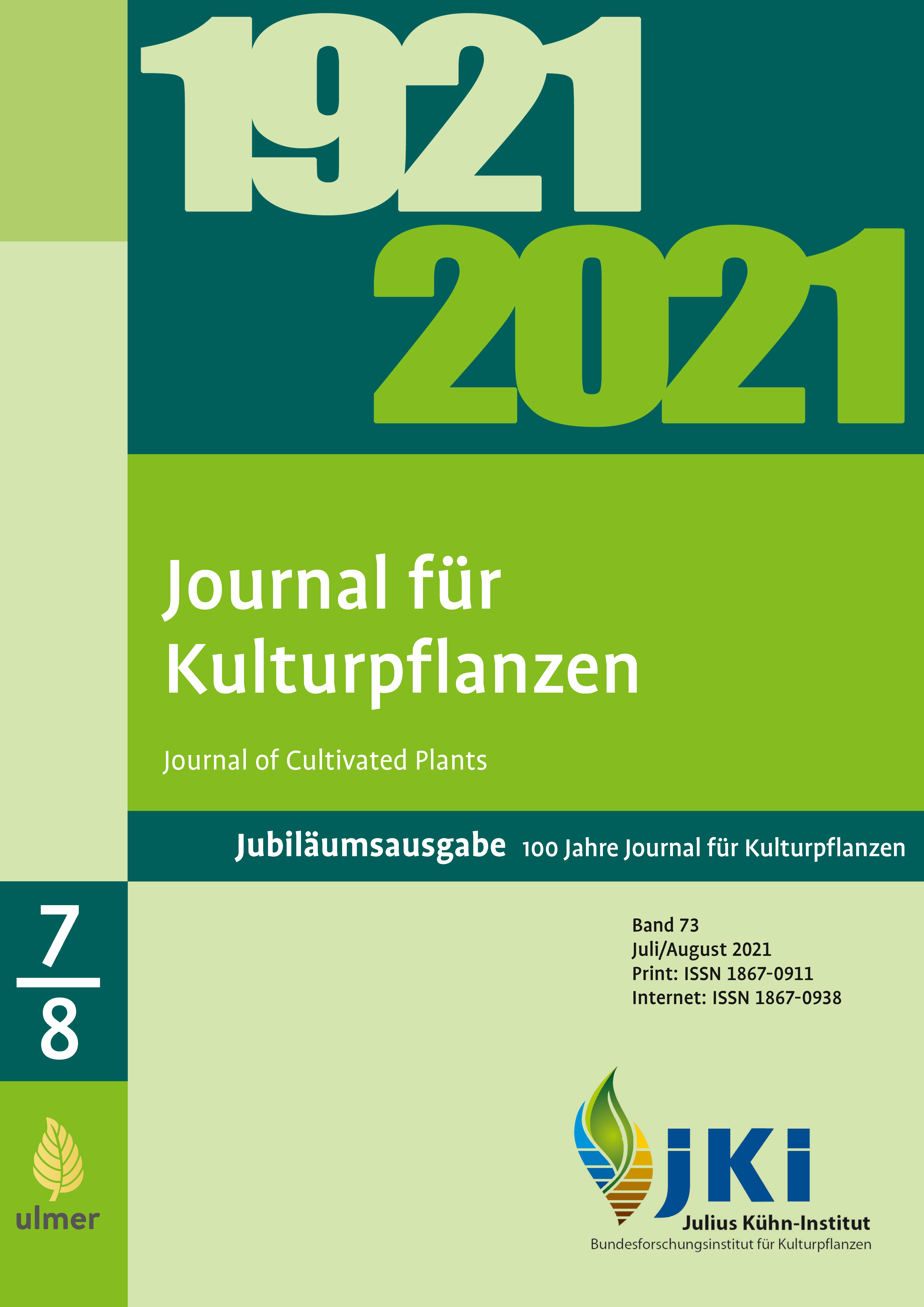110 years of research for biological control – Achievements and future challenges at the Julius Kühn-Institut
DOI:
https://doi.org/10.5073/JfK.2021.07-08.09Keywords:
Beneficials, microorganisms, botanicals, biodiversity, pesticidesAbstract
Biological plant protection employs living organisms and biological ingredients to control disease agents and pest populations. They are considered as highly environmentally friendly and obtained utmost importance in recent European and national strategies to reduce the use of chemical pesticides. First research activities on the use of parasitic wasps in Germany date back to 1911. From the 1950s, further systematic research and development were carried out at the Institute for Biological Control in Darmstadt. Multiple achievements and repeated throwbacks mark the long path of biological control since these early pioneering days. Today, many biological control measures are an indispensable component in the plant protection practice. Their role in future plant production systems will be even more decisive.
Downloads
Published
Issue
Section
License
Copyright (c) 2021 Johannes Jehle, Annette Herz

This work is licensed under a Creative Commons Attribution 4.0 International License.
The content of the journal is licensed under the Creative Commons Attribution 4.0 License. Any user is free to share and adapt (remix, transform, build upon) the content as long as the original publication is attributed (authors, title, year, journal, issue, pages).
The copyright of the published work remains with the authors. The authors grant the Journal of Cultivated Plants, the Julius Kühn-Institut and the OpenAgrar repository the non-exclusive right to distribute and exploit the work.







